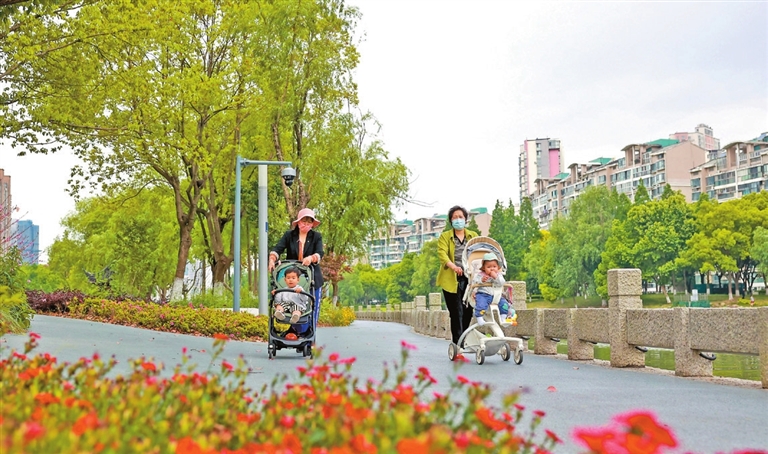
WHILE over 100 Chinese cities are encouraging homeowners to swap their old properties for new ones, Wuxi in East China’s Jiangsu Province took a bolder stride by offering intercity housing trade-in options. The State-owned Liangxi Urban Development Group made their plan widely known earlier this month, which allows homeowners to trade in pre-owned residential properties in Wuxi, as well as neighboring Suzhou and Changzhou, for new homes in the city’s Liangxi District. The trade-in program supports a variety of options, including one-for-one, one-for-multiple, or multiple-for-one swaps. However, it is stipulated that the total value of the pre-owned properties must not exceed 60% of the new property's price, with the remaining 40% to be paid either in cash or through financing options. Many industry insiders view such property trade-in measures as part of China’s broader strategy to reduce housing inventory, facilitate transactions for both new and pre-owned homes, and stimulate the property market. According to data from the China Index Academy, the average price of second-hand residential properties in 100 cities nationwide stood at 14,653 yuan (US$2,051) per square meter in July, 0.74% down from the previous month, and continuing a 27-month slump. The National Bureau of Statistics said that as of the end of June, the unsold inventory of newly built commercial properties in China had reached 738.94 million square meters, an increase of 15.2% year-on-year, while unsold residential properties recorded a 23.5% rise. Statistics indicate that since sealing its first intra-city deal April 25 this year, the Wuxi-based developer had completed over 40 transactions by mid-May. The acquired older properties have been repurposed for resale, affordable housing, or talent apartments. Zhang Bin, vice president of the Wuxi Real Estate Association, said that this scheme will help invigorate both the primary and secondary housing markets in Wuxi, while also attracting homebuyers from Suzhou and Changzhou to settle and invest in Wuxi. “It's a strategic move to attract and retain talent, promote coordinated urban development and accelerate the flow of professionals within the economically vibrant Yangtze River Delta,” Zhang added. According to Yan Yuejin, deputy director of the E-house China R&D Institute in Shanghai, Wuxi’s trade-in scheme is currently the most innovative among policies rolled out by over 100 cities nationwide, and is worth emulating. Noting that many individuals working in major cities like Beijing and Shanghai have opted to temporarily purchase homes in nearby cities, Yan said such trade-in policies could present them with new opportunities to eventually buy homes in these high-priced metropolitan areas. “The potential for such trade-ins across city clusters and metropolitan areas in China is vast,” he said. (Xinhua) | 
